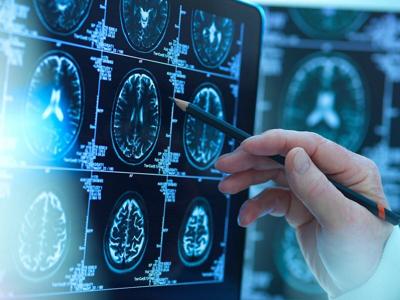Key Takeaways
There's a specific 'body profile' that may be crucial to the vitality of aging brains
Whole-body MRI scans show that bodies with more muscle and less fat around the organs are most closely linked to youthful brains
The findings could help in the design of weight-loss drugs targeting brain health
TUESDAY, Nov. 25, 2025 (HealthDay News) — Fitter bodies and muscles could keep brains young and fit, too, a new study suggests.
“Healthier bodies with more muscle mass and less hidden belly fat are more likely to have healthier, youthful brains,” said study senior author Dr. Cyrus Raji, associate professor of radiology and neurology at Washington University School of Medicine in St. Louis, Missouri.
“While it is commonly known that chronological aging translates to loss of muscle mass and increased hidden belly fat, this work shows that these health measures relate to brain aging itself,” Raji noted. “It shows muscle and fat mass quantified in the body are key reflectors of brain health, as tracked with brain aging.”
His team analyzed the whole-body MRI images of almost 1,200 healthy adults to pinpoint the ideal “body profile” for healthy brain aging.
They will report their findings next week in Chicago at the annual meeting of the Radiological Society of North America (RSNA).
Speaking in an RSNA news release, Raji said there's long been “widely held hypotheses about the association between body composition biomarkers and brain health.”
In the new study, his team collected whole-body MRI scans of 1,164 healthy men and women who averaged about 55 years of age.
They combined the MRI data with another technology that allows tissues to show up as bright in areas of fat deposition, and dark in fluid-rich areas.
AI algorithms were then used to quantify each person’s level of muscle and fat (both fat under the skin and fat collecting around organs), as well as their estimated “brain age.”
An ideal body profile emerged.
“The participants with more muscle tended to have younger-looking brains, while those with more hidden belly fat relative to their muscle had older-looking brains,” Raji said. “The fat just under the skin wasn’t related to brain aging. In short, more muscle and a lower visceral [belly] fat to muscle ratio were linked to a younger brain.”
That could have wide ranging implications for brain health, he added.
“Better brain health, in turn, lowers the risk for future brain diseases, such as Alzheimer’s,” Raji said.
He pointed out that people have control over their body profile.
“Losing fat — especially visceral fat — while preserving muscle volume would have the best benefit on brain aging and brain health,” he said.
Of course, the advent of GLP-1 weight-loss medications mean many people will turn to those drugs to help them shed excess fat.
However, according to the study authors, GLP-1s can also shrink muscle volume.
It’s possible that findings like the ones from this study might help in the development of GLP-1 meds that target visceral fat specifically and have minimal impact on muscle, Raji said.
They study might also “help determine the optimal dosing regimens for GLP-1s to achieve the best outcomes in body and brain health,” he said.
Because these findings were presented at a medical meeting, they should be considered preliminary until published in a peer-reviewed journal.
More information
Find out more about keeping the brain healthy with age at the American Brain Foundation.
SOURCE: Radiological Society of North America, news release, Nov. 25, 2025
What This Means For You
More muscle, less belly fat: That could be the key to keeping your brain healthy as you age.





















(0) comments
Welcome to the discussion.
Log In
Keep it Clean. Please avoid obscene, vulgar, lewd, racist or sexually-oriented language.
PLEASE TURN OFF YOUR CAPS LOCK.
Don't Threaten. Threats of harming another person will not be tolerated.
Be Truthful. Don't knowingly lie about anyone or anything.
Be Nice. No racism, sexism or any sort of -ism that is degrading to another person.
Be Proactive. Use the 'Report' link on each comment to let us know of abusive posts.
Share with Us. We'd love to hear eyewitness accounts, the history behind an article.